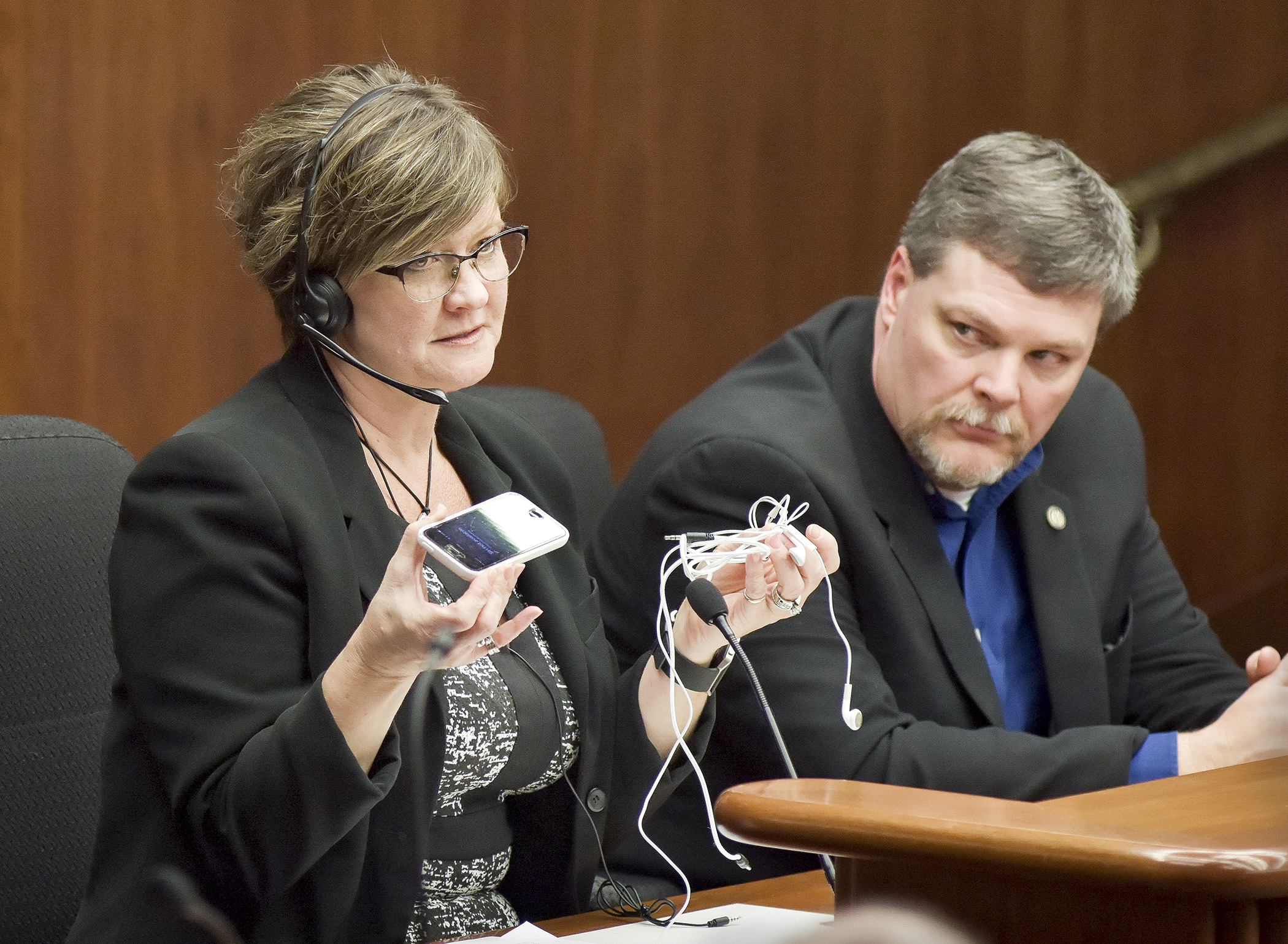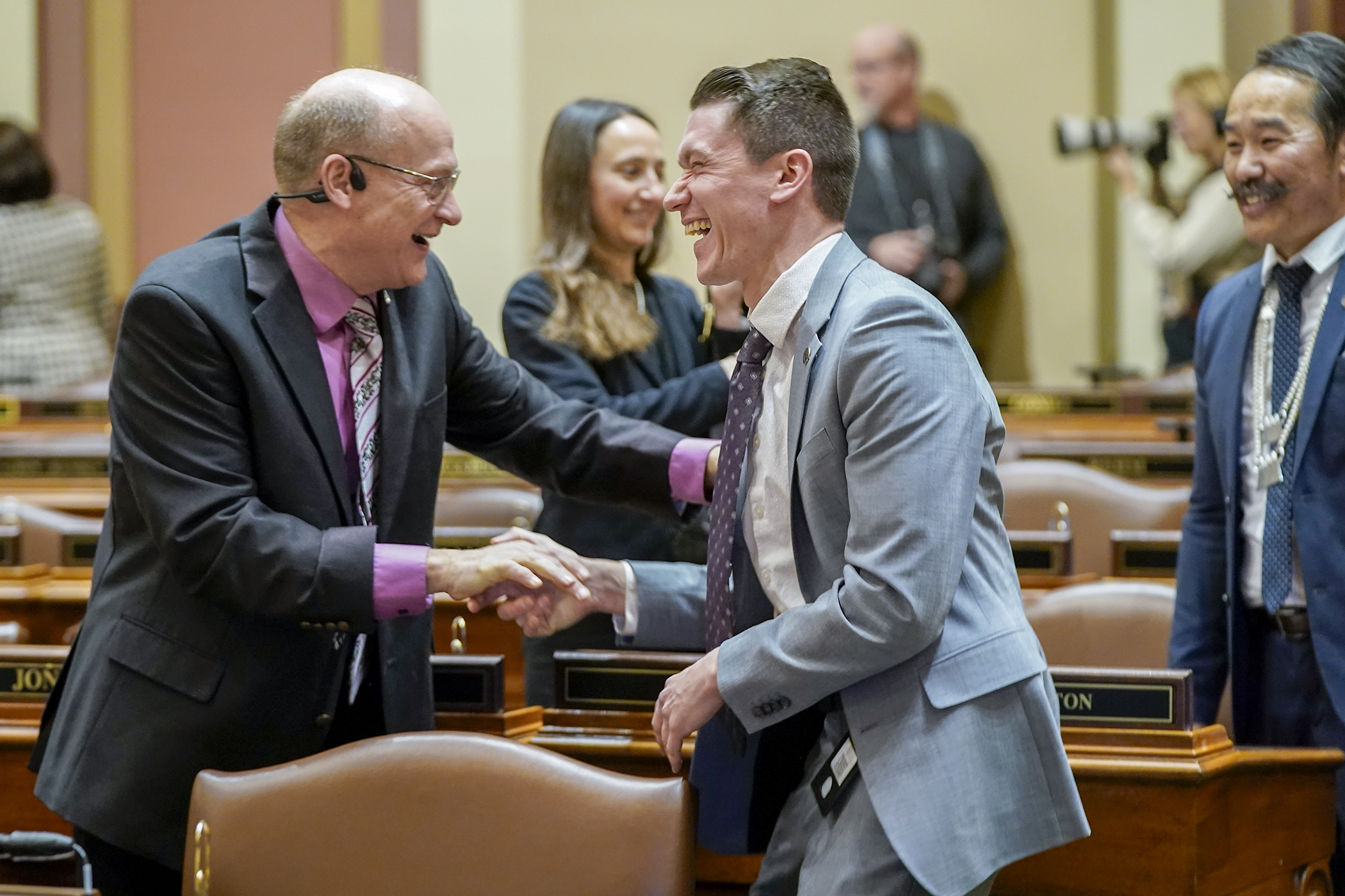Handheld cell phone driving ban gets underway

Hands on the wheel and off the phone may become more than just a good idea if a bill approved by the House Transportation and Regional Governance Policy Committee Friday becomes law.
Sponsored by Rep. Mark Uglem (R-Champlin), HF1180 would make handheld cell phone use illegal when operating a motor vehicle. Phones could be used in hands-free mode and in some emergency situations. Devices that function solely for GPS or navigation purposes could also still be used.
The bill was referred to the House Public Safety and Security Policy and Finance Committee. Its companion, SF837, is sponsored by Sen. Jim Carlson (DFL-Eagan) and awaits action by the Senate Transportation Finance and Policy Committee.
Bill proponents say it would make the roads safer by reducing distracted driving, keeping a driver’s hands on the wheel, and also by making it easier for law enforcement to spot violations.
“It’s simple, two hands on the wheel are better than one or none,” Uglem said.
 Lisa Kons, traffic safety coordinator for the Minnesota Safety Council, demonstrates several methods to make a cell phone hands free during discussion of a bill that would mandate hands free cell phone use while driving. Photo by Andrew VonBank
Lisa Kons, traffic safety coordinator for the Minnesota Safety Council, demonstrates several methods to make a cell phone hands free during discussion of a bill that would mandate hands free cell phone use while driving. Photo by Andrew VonBankSeveral families who lost loved ones to distracted drivers testified in support of the bill, some saying it didn’t go far enough and asking for even stiffer penalties.
The fine for a first offense would be $50, and $250 for a second offense.
Col. Matt Langer, chief of the Minnesota State Patrol also spoke in support of HF1180, saying the current law against texting while driving is almost impossible to enforce because troopers often can’t determine how drivers are using their phones.
“If this bill were to pass, and law enforcement saw someone driving down the road with their phone like this [holding phone to the ear], that would be a reason to stop that vehicle and take enforcement action in the form of a citation or a warning,” Langer said.
Uglem said distracted driving caused 86,000 crashes in Minnesota from 2011 to 2015.
Langer also told the story of a mother who was hit and killed while on a bicycle ride with her children, who were severely injured. The State Patrol made a video about that accident that he said “provides a stellar example” of the toll distracted driving takes.
“I think this [bill] would be a wonderful opportunity for Minnesotans to change their behaviors and make our roads safer,” Langer said.
Related Articles
Search Session Daily
Advanced Search OptionsPriority Dailies
Minnesota's budget outlook worsens in both near, long term
By Rob Hubbard It looks as if those calling for less state spending could get their wish, judging from Thursday’s release of the February 2025 Budget and Economic Forecast.
A state su...
It looks as if those calling for less state spending could get their wish, judging from Thursday’s release of the February 2025 Budget and Economic Forecast.
A state su...
Full House convenes for first time in 2025, elects Demuth speaker
By Tim Walker DFL, Republicans convene with a quorum for the first time in 2025 session after agreeing to a power-sharing deal.
DFL, Republicans convene with a quorum for the first time in 2025 session after agreeing to a power-sharing deal.